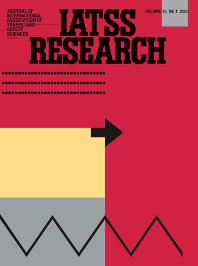
Understanding the Socioeconomic Characteristics of Paratransit Drivers and Their Perceptions Toward Electric Three-Wheeled Rickshaws in Delhi, India
Publication Year: 2021
Author(s): Priye S, Manoj M, Ranjan R
Abstract:
In India, electric rickshaws (ERs) prove to be a sustainable and affordable paratransit mode for the public. In recent years, the electric version of three-wheeled paratransit, commonly known as ‘electric rickshaws,’ has joined the transportation systems of Indian cities. The ER service is also creating employment and income opportunities for the unskilled labor force. Many Indian state governments are proposing ER services to cater to first and last-mile trips. Therefore, planners must identify the significant factors that can affect ER services' adoption and expansion. Because of this, the present study investigates the perceptions of drivers of three prominent paratransit modes toward ERs. The research also provides a better understanding of the socio-economic conditions of these paratransit drivers. The study utilizes data of 620 paratransit drivers obtained from a face-to-face survey conducted in Delhi, India. Grey relation analysis is applied to assess the three paratransit driver groups' perceptions about ERs. The data reveals that paratransit drivers belong mostly to low financial and educational backgrounds. The lack of facilities such as designated parking and fixed charging stations and fare regulation is perceived as critical ER services barriers. Similarly, the absence of separate lanes and unsafe overtaking attempts by fast-moving vehicles are the major causes of accidents involving ERs. Both parking and charging problems can be resolved if policymakers build government-aided establishments at specifically designated locations within the city. Further, the light body of ERs and careless driving and traffic rule violations of drivers in mixed traffic conditions are the primary safety issues. The study also highlights potential policy recommendations to design an efficient electric version of the paratransit service for achieving sustainable development goals. All manufacturers should adhere to government-mandated conformity checks, and authorities should strictly regulate the operation of unregistered automobiles.
Source of Publication: IATSS Research
Vol/Issue: In Press
DOI No.: 10.1016/j.iatssr.2021.03.002
Country: India
Publisher/Organisation: Elsevier Ltd.
Rights: CC BY-NC-ND license (http://creativecommons.org/licenses/by-nc-nd/4.0/)
Theme: Sustainable transportation | Subtheme: Shared mobility
Related Documents
Reports
Moving Forward Together
Published Year: 2018
Abstract:
India is at an inflection point in the development of its mobility system. Indian cities are c... Read More
Reports
State/UT Strategies for Transforming Mobility
Published Year: 2018
Abstract:
In the context of rising urban population in India, even now three fourth of population still... Read More
Reports
A handbook of select Global and Indian Best Practices on Mobility
Published Year: 2018
Abstract:
A confluence of new technology trends and business models, is bringing about fundamental chang... Read More



